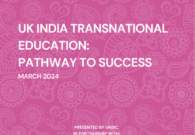In conversation with Mr. Richard Cotterell – Innovation in the economy
'Strictly defined objectives, coupled with a fixed timeline of meetings and defined and measureable deliverables...will ensure a great amount of success to such joint efforts' says, Mr. Richard Cotterel, Managing Director, Perkins Engines Company Ltd in an interview with Dr. Rakhi Rashmi, Barrister England and Wales
Richard Cotterell, Managing Director, Perkins Engines Company Ltd. graduated in Business Studies from Coventry University and also holds a degree in Business Administration from Warwick University. Richard Cotterell has been associated with the Caterpillar Inc. for close to 15 years and possesses in-depth experience in the power sector. Cotterell commenced his association with Perkins in 1997 as a Commodity Buyer. Later he went on to become the General Manager of Caterpillar Logistics from 2002 – 2005. He then served as a Vice President, Commercial EAME at Caterpillar Logistics from 2005-09. Besides being the MD of Perkins India, Cotterell has also been the General Manager for Large Engines at Perkins since 2009. Prior to joining Caterpillar, he worked for Racal Radar Defence Systems Ltd., Mercury Communications & Coopers & Lybrand.
1. What do you see as the major innovation opportunities in each stage of the value chain, work architecture and future constructs of development in the UK-India collaborative universes?
Innovations in R&D in the advanced engineering sphere offers significant scope, particularly in fields such as life sciences, defence, alternative energy, and aerospace. By effectively co-inventing a particular solution, further opportunities extend to other elements of the value chain. For example, from technology transfer to building a prototype and eventually shared production or management of the implementation and supply chain processes.
Advanced manufacturing techniques would benefit from the cultural differences between the UK and India as perspectives can be different and this in itself can add value. There have been many examples of virtual teams operating across the UK and India that are working on a single development. In such instances, the time difference is very often used to the team’s advantage.
The financial sector offers another opportune area for joint innovation between the two nations, particularly keeping in mind India’s aspiration to elevate Mumbai to a major financial hub akin to London. Trading processes will however need extensive “readjustment” if benefits are to be maximised. Free Trade Agreements (FTAs) although currently being worked upon, need to be established quickly.
The joint efforts of the UK which has been in the forefront of innovation in most advanced fields and India with its talented human resource pool of engineers, will act as an ideal laboratory for several future innovative global products and processes.
2. Given both countries want to grow their economies through manufacturing, and related sectors such as infrastructure, services etc. should we identify areas of common interest and come up with a plan to grow our industrial economies together?
Joint economic growth policies can provide some benefits to both countries. However, the challenges in this effort will be formidable (although not unsurmountable) considering the huge difference in the economic development and environment existing between the nations. Each country has structural needs which differ. India needs infrastructure and its services sector, particularly financial, remains burdened by government controls. The UK can help in these areas significantly.
Conversely, India has developed some very successful major industries where structurally and even philosophically global evolution of these has occurred within only ten years. Many have now become world leaders in their own right. There has been considerable success in achieving this at a minimal cost. Historically, such diverse conglomerates have not been too successful in the UK and there may be structural lessons to learn from the success of the Indian model. The newly emerging “start-up” ventures culture in India could be another area for the UK to benefit from as it ties to establish a similar culture at home.
3. What is the best way for developing this interaction/dialogue to its next stage happen?
In order to achieve an outcome which has both meaning and impact from the UK-India collaborative effort, both countries should set up an institutional mechanism that can be pursued on a focused and continuous basis. Specific areas of interest must be clearly defined and agreed upon by both countries. This should be complemented with experienced personnel and experts from the identified sectors that are working in close collaboration in teams, with clearly defined objectives and in a time-bound and appropriately governed manner.
4. What infrastructure mechanisms could we share or exchange to make a real difference?
Both countries should establish systems to review the progress of teams that collaborate to work in the various fields mentioned previously. This should be undertaken at reasonable intervals, rather than the current arrangement of having annual bi-lateral meetings. Annual meetings should be used for setting new goals and providing overall direction to the on-going efforts and projects.
Strictly defined objectives, coupled with a fixed timeline of meetings and defined and measureable deliverables that are covered by a robust governance process will ensure a great amount of success to such joint efforts. Senior Government or industry officials should oversee the work of joint project teams. They should be empowered with adequate administrative privileges to accelerate decision making and should also be held accountable for any lapses in project success.
To accomplish such collaborative efforts, both nations should set up institutional mechanisms at Government-to Government, Government-industry, and also Government-industry-academic institution levels.
5. What emerging economic opportunities in each country can we address in partnership?
Given issues such as global warming and the use of fossil fuels, the biggest economic opportunity is in the area of clean power. This will involve finding efficient technologies to replace major power stations. Innovation is key to this. Both India and the UK have a strong record of innovation. A combined approach would have distinct benefits not just for the partner countries but also globally.
Year after year, thousands of lives and billions of dollars’ worth assets, are lost world wide more so in the developing countries. Innovations in weather prediction or climate science could be another area for collaboration between the two nations.
Rapid urbanisation and the consequent need for development of sustained cities is a major opportunity emerging in India in the coming years. The development of “Smart” cities with integrated transportation, industry and housing is an area of particular importance where work could be undertaken jointly.
6. What should the role of governments be in this interaction?
The government could play a pivotal role in providing guidance through policy framework, encouragement through facilitation, including but not limited to tax holidays for new set-ups, providing certainty to the taxation norms for multi-jurisdictional transactions, governance where appropriate, and providing or sourcing adequate funding at competitive rates. Governments need to encourage the best expertise in their countries to participate in this dialogue and ensure progress is being made through effective control of the overall process.







